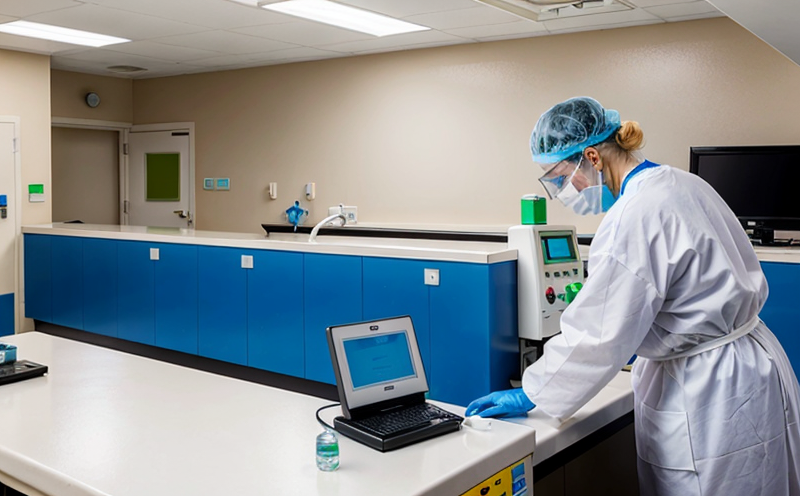Legionella Testing in Hospital Water Distribution Systems
Legionella testing is a critical component of water quality management in healthcare facilities. Legionella bacteria, which can cause the severe pneumonia-like illness known as Legionnaires' disease, thrive in warm environments such as hospital water systems. Given the high risk of infection for vulnerable patient populations in hospitals, it is essential to monitor and control these pathogens.
Water distribution systems in hospitals are complex, comprising various points of use, including faucets, showers, cooling towers, hot tubs, and humidifiers. The presence of Legionella can be influenced by factors such as water temperature, stagnation, biofilm formation, and the types of materials used in plumbing fixtures. Proper testing helps healthcare facilities to identify potential risks and implement necessary control measures.
According to ISO 11731, Legionella pneumophila is the primary species of concern, though other serogroups may also be tested depending on local regulations. Testing typically involves sampling water from outlets that are frequently used by patients or staff. Samples are then analyzed using culture methods or molecular detection techniques to identify and quantify Legionella.
The importance of this testing cannot be overstated. Hospitals with inadequate control measures risk outbreaks, which can lead to significant health impacts on patients and staff alike. Infections can result in prolonged hospital stays, increased healthcare costs, and even death. Furthermore, an outbreak can severely damage a facility's reputation and compliance status.
In the context of Clinical & Healthcare Testing, Legionella testing is essential for maintaining the highest standards of patient care and ensuring regulatory compliance. Compliance with guidelines such as those provided by the US Centers for Disease Control and Prevention (CDC) and the World Health Organization (WHO) is crucial.
Testing should be conducted regularly, especially during periods when the risk of Legionella growth may increase, such as after repairs or maintenance activities that could affect water flow. Effective control measures include maintaining proper water temperature, minimizing stagnation time, cleaning cooling towers, and using approved biocides where appropriate.
Eurolab Advantages
EuroLab offers comprehensive Hospital Hygiene & Environmental Monitoring Testing, including Legionella testing. Our specialized expertise ensures that we can provide accurate and reliable results, helping healthcare facilities maintain the highest standards of hygiene.
- We utilize advanced molecular detection techniques to ensure precision and speed in identifying Legionella species.
- Our team of professionals is well-versed in international standards such as ISO 11731 and can provide tailored testing solutions for any facility.
- We offer rapid turnaround times, allowing facilities to receive results quickly and implement necessary control measures promptly.
In addition to Legionella testing, EuroLab also provides a wide range of other services in the healthcare sector. From microbiology to chemical analysis, we have the expertise and resources to meet all your testing needs.
Why Choose This Test
- Enhanced Patient Safety: By identifying Legionella early on, hospitals can prevent outbreaks that could lead to severe health impacts.
- Regulatory Compliance: EuroLab ensures that all tests comply with international standards and local regulations.
- Swift Turnaround Times: Our rapid testing process allows for timely implementation of control measures.
Hospital hygiene is a critical aspect of patient care, and Legionella testing plays a pivotal role in maintaining this standard. By choosing EuroLab for your Legionella testing needs, you can ensure that your facility remains safe, compliant, and efficient.
Customer Impact and Satisfaction
EuroLab's commitment to excellence has been recognized by numerous healthcare facilities across the globe. Our customers consistently report high levels of satisfaction with our services due to their reliability, accuracy, and speed.
- Improved Patient Safety: By reducing the risk of Legionnaires' disease outbreaks, we help protect vulnerable patient populations.
- Enhanced Reputation: Facilities that maintain high hygiene standards often see an improvement in their reputation and public trust.
We understand the importance of maintaining a safe environment for patients, staff, and visitors. Our comprehensive testing services, combined with our expertise and commitment to quality, ensure that healthcare facilities can achieve these goals effectively and efficiently.





